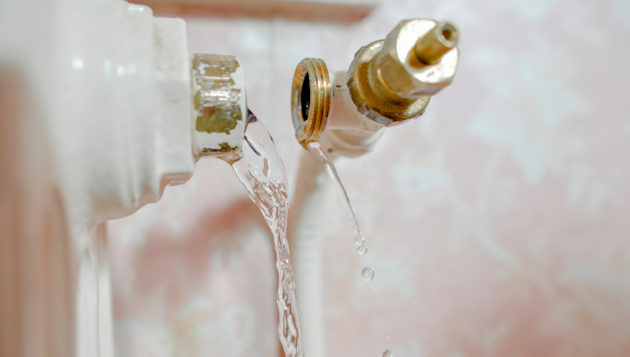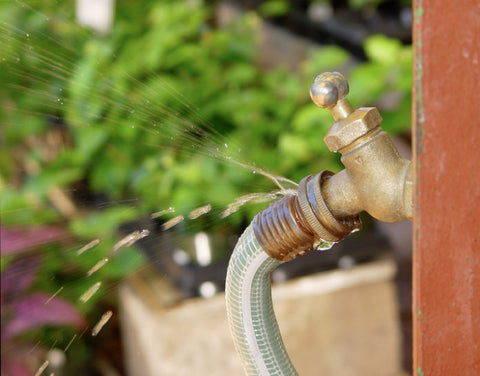Smart Approaches to Protect Your Plumbing in Chilly Temperatures
Smart Approaches to Protect Your Plumbing in Chilly Temperatures
Blog Article
We have found this article relating to How to Prevent Frozen Pipes down the page on the internet and decided it made good sense to write about it with you over here.

All homeowners who live in pleasant climates need to do their finest to winterize their pipes. Failing to do so can mean catastrophe like frozen, cracked, or burst pipelines.
Attempt a Hair Dryer or Warmth Gun
When your pipes are almost freezing, your dependable hair dryer or heat gun is a godsend. If the warm towels do not help displace any type of clearing up ice in your pipes, bowling hot air directly right into them may assist. Nonetheless, do not make use of various other things that create direct flames like a blow torch. This can result in a larger catastrophe that you can not manage. You may wind up destructive your pipes while trying to melt the ice. And over time, you may even wind up melting your house. Be careful!
Open Up Closet Doors Hiding Plumbing
When it's chilly outside, it would be handy to open cabinet doors that are concealing your pipelines. Doing this little method can maintain your pipelines warm and restrict the potentially unsafe outcomes of freezing temperature levels.
Require Time to Wrap Exposed Pipeline
One great as well as easy hack to warm up icy pipes is to wrap them with warm towels. You can additionally use pre-soaked towels in warm water, just don't neglect to wear protective gloves to secure your hands from the warmth.
Turn On the Faucets
When the temperature decreases as well as it appears as if the cold temperature will last, it will assist to switch on your water both inside and also outdoors. This will maintain the water flowing with your plumbing systems. On top of that, the motion will certainly reduce the cold process. Significantly, there's no requirement to turn it on full blast. You'll wind up throwing away gallons of water in this manner. Rather, go for regarding 5 drops per minute.
When Pipelines are Frozen, close Off Water
Shut off the main water valve quickly if you see that your pipes are totally icy or practically nearing that phase. You will usually discover this in your cellar or utility room near the heater or the front wall closest to the street. Turn it off right away to prevent more damages.
Do not forget to shut exterior water resources, also, such as your connection for the yard home. Doing this will protect against extra water from filling your plumbing system. With even more water, more ice will load up, which will ultimately lead to burst pipelines. It is best to call a specialist plumber for an evaluation if you are not sure regarding the state of your pipelines this winter season. Taking this aggressive approach can save you hundreds of bucks in repairs.
All property owners who live in temperate environments should do their ideal to winterize their pipelines. Failure to do so can spell calamity like frozen, cracked, or ruptured pipes. If the hot towels do not help displace any kind of clearing up ice in your pipes, bowling hot air directly into them might help. Transform off the primary water shutoff immediately if you observe that your pipes are totally frozen or practically nearing that stage. With even more water, even more ice will certainly stack up, which will eventually lead to burst pipes.
PREVENT YOUR PIPES FROM FREEZING THIS WINTER
A Leading Cause of Property Damage
When the weather is taking a deep nose dive into the cold dreary days, the risk of your pipes freezing and potentially bursting skyrockets. Unfortunately, during these cold dreary months, burst pipes are the most common denominator for property damage. The pipes that are most at the risk are those that are in areas where it is most cold in your home. For instance, pipes located in interior places such as basements, attics, and your garage. Unfortunately, that doesn’t mean that the pipes running through your cabinets or exterior walls can’t freeze. Good news, however, is that you can do things to help prevent pipes from freezing.
How to Prevent Pipes From Freezing
Once the temperature starts to drop during the winter, you should be taking the proper measures needed to ensure that your pipes stay warm and that there is circulation of water through them. Some steps that experts may recommend could go against your better judgement when it comes to saving water and heat. However, it would go without saying that when expenses are compared, damaged pipes could put a bigger dent in your wallet than a water bill.
What Can I Do?
Keep your garage door closed. This is very important, especially if you have water supply lines running through your garage. Open your kitchen and bathroom cabinets to allow warm air to circulate through them. Allow air circulation throughout your home. Keeping the interior doors open will once again allow the warm air to circulate inside your home. Ensure your thermostat is running the same temperature throughout the night and day. If you plan to be away from home during the cold months, set your temperature no lower than 55° F. This should provide enough heat to keep the pipes warm and prevent any remaining water inside the pipes from freezing. For more of a long-term solution, add insulation to attics, basement, and other crawl spaces around your home. By allowing your faucet to drip, it will alleviate pressure in the system. This is important because the pressure that is created between the blockage and the faucet can potentially cause the pipes to burst. Allowing the faucet to drip will prevent the pressure from building up, therefore keeping the pipes from bursting. Seal any cracks, openings, and crawl spaces around your home to prevent cold air from coming inside. This keeps your pipes-not to mention your home-warmer and less susceptible to issues caused by freezing temperatures. For the pipes in your home that are easily accessible, applying electrical tape to them might prevent them from freezing over. This is a quick fix, as you can apply the tape directly to the pipe. There are two options for heating tapes. One turns on and off by itself when it senses heat is needed. The other type of heating tape needs to be applied when heat is needed and removed when not necessary. If you have exposed pipes in your home, you can check this website to take a look at a few options that would be available at a shop near you.

I'm certainly very occupied with How to stop pipes from freezing during the winter and I am praying you liked the new blog entry. Sharing is nice. You just don't know, you will be helping someone out. Thank-you for going through it.
Sink issue? Dial. Report this page